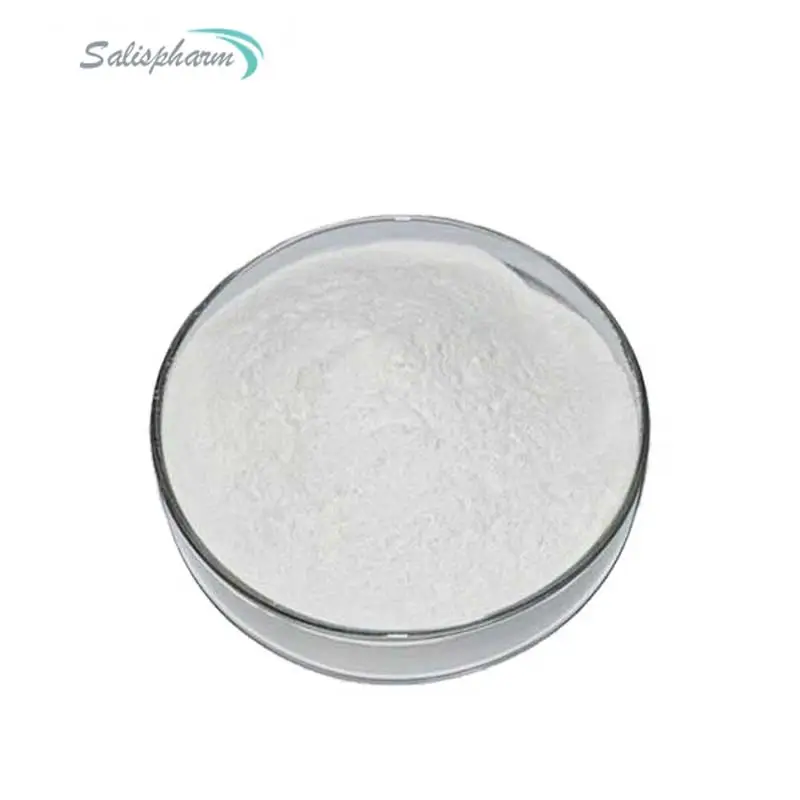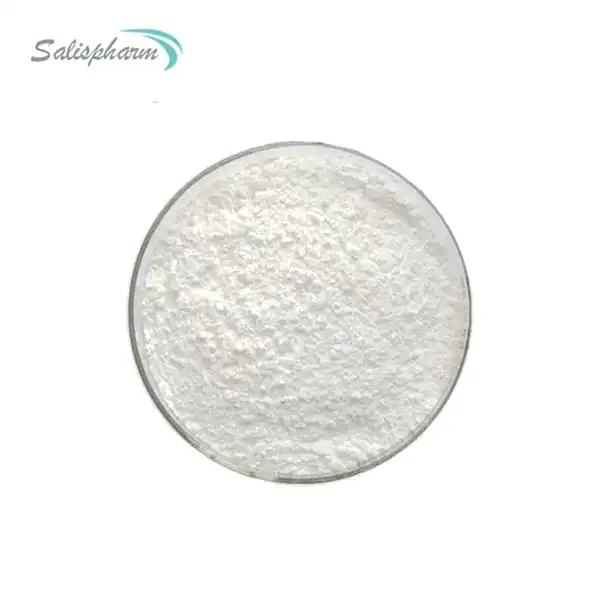Melatonin is a hormone produced naturally by the pineal gland in the brain. It helps regulate the sleep-wake cycle by signaling to the body when it's time to feel sleepy and awake. Melatonin supplements are widely used as a sleep aid for those struggling with insomnia, jet lag, or other sleep disturbances. However, one common question people have is how long it takes for melatonin powder, a popular supplemental form, to start working.
What is the Best Time to Take Melatonin Powder?
Timing is crucial when taking melatonin powder or any melatonin supplement. Melatonin is intended to work with your body's natural sleep-wake cycle, so taking it at the right time can maximize its effectiveness.
Ideally, you should take melatonin powder about 2 hours before your desired bedtime. This allows the melatonin levels in your blood to gradually increase, mimicking the natural rise that occurs in the evening as you get ready for sleep. The exact timing may vary slightly from person to person, but the general recommendation is to take it between 1 to 2 hours before your target bedtime.
If you take melatonin too early in the day, such as in the late afternoon, it may cause you to feel drowsy prematurely, potentially interfering with your daily activities. On the other hand, taking it too close to your desired bedtime may not give it enough time to take effect before you try to fall asleep, rendering it less effective.
It's also essential to maintain a consistent sleep schedule when using melatonin powder. Taking it at different times each night can disrupt your body's internal clock, making the supplement less effective and potentially causing further sleep disturbances.

How Much Melatonin Powder Should You Take?
The appropriate dosage of melatonin powder can vary depending on individual factors such as age, weight, sensitivity to the supplement, and the specific sleep issue you're trying to address. However, most experts recommend starting with a low dose, usually between 0.5 mg and 5 mg.
It's important to note that more is not necessarily better when it comes to melatonin. Higher doses do not necessarily lead to better sleep quality or faster onset of sleepiness. In fact, taking too much melatonin can actually disrupt your sleep cycle and cause unwanted side effects such as headaches, dizziness, nausea, or grogginess the following day.
If you find that a low dose of melatonin powder is not effective, you can gradually increase the dosage until you find the amount that works best for you. However, it's generally recommended to stay within the range of 0.5 mg to 10 mg per night for adults.
It's worth noting that the optimal dosage for melatonin powder may also depend on the specific sleep issue you're trying to address. For instance, lower doses (0.5 mg to 3 mg) are often recommended for jet lag or sleep cycle adjustments, while higher doses (3 mg to 10 mg) may be more effective for treating insomnia or sleep disturbances related to certain medical conditions.
Melatonin powder is not recommended for children unless under the supervision of a healthcare professional, as the appropriate dosage and safety have not been well-established in this age group. It's also important to consult with your doctor before taking melatonin if you are pregnant, breastfeeding, or have any underlying medical conditions or medications that could interact with the supplement.
Can You Become Dependent on Melatonin Powder?
One common concern about taking melatonin supplements, including melatonin powder, is the potential for developing dependence or addiction. While melatonin is generally considered safe for short-term use, there is some debate about the risks of long-term use.
Melatonin is not considered an addictive substance in the traditional sense, as it does not produce the same physical or psychological dependence as substances like alcohol or opioids. However, some people may develop a psychological reliance on melatonin, particularly if they have been taking it for an extended period without addressing the underlying causes of their sleep disturbances.
If you have been taking melatonin powder for an extended time and decide to stop, you may experience temporary sleep disruptions as your body readjusts to its natural melatonin levels. This is known as a "rebound effect" and can include symptoms such as difficulty falling asleep, waking up frequently during the night, or feeling less rested upon waking.
However, it's important to note that these effects are typically mild and temporary, lasting only a few days to a week or two as your body re-establishes its normal sleep-wake cycle. The risk of experiencing more severe withdrawal symptoms is generally low, especially if you taper your dosage gradually rather than stopping abruptly.
To minimize the risk of developing a reliance on melatonin powder, it's recommended to use it as a short-term solution and to practice good sleep hygiene habits, such as maintaining a consistent sleep schedule, creating a relaxing bedtime routine, and avoiding stimulating activities before bed. Additionally, addressing any underlying factors that may be contributing to your sleep disturbances, such as stress, anxiety, or medical conditions, can help reduce your reliance on sleep aids like melatonin.
If you have been taking melatonin powder for an extended period and are concerned about dependence or experiencing withdrawal effects, it's best to consult with a healthcare professional before stopping abruptly. They may recommend gradually tapering your dosage over a period of several weeks to minimize any potential withdrawal effects.
Other Considerations and Side Effects
While melatonin powder is generally well-tolerated, it's important to be aware of potential side effects and interactions with other medications or supplements. Some common side effects of melatonin include:
- Drowsiness or grogginess the following day, especially with higher doses
- Headaches
- Nausea or dizziness
- Vivid dreams or nightmares
It's also worth noting that melatonin can interact with certain medications, such as blood thinners, diabetes medications, immunosuppressants, and antidepressants. If you are taking any prescription medications, it's important to consult with your healthcare provider before starting melatonin powder or any other supplement.
Additionally, while melatonin is generally considered safe for short-term use, the long-term effects of prolonged melatonin supplementation are not well-understood. Some studies have suggested that long-term use of melatonin may potentially impact other hormonal systems in the body or contribute to the development of certain health conditions, such as reproductive issues or increased risk of certain types of cancer. However, more research is needed to fully understand the potential risks and benefits of long-term melatonin use.
Conclusion
Melatonin powder can be an effective sleep aid when taken correctly and at the appropriate dosage. For most people, it typically takes between 30 minutes to 2 hours for the effects of melatonin powder to kick in, with the ideal time to take it being about 2 hours before your desired bedtime.
While melatonin powder is generally considered safe for short-term use, it's essential to follow the recommended dosages and to consult with a healthcare professional if you have any concerns or plan to use it for an extended period. By understanding how to take melatonin powder effectively, being mindful of potential side effects and interactions, and addressing any underlying causes of sleep disturbances, you can maximize its benefits as a sleep aid while minimizing any potential drawbacks.
If you are also interested in this product and want to know more product details, or want to know about other related products, please feel free to contact iceyqiang@gmail.com.
References:
1. National Sleep Foundation. (2023). Melatonin and Sleep.
2. Mayo Clinic. (2022). Melatonin.
3. Ferracioli-Oda, E., Qawasmi, A., & Bloch, M. H. (2013). Meta-analysis: melatonin for the treatment of primary sleep disorders. PloS one, 8(5), e63773.
4. Buscemi, N., Vandermeer, B., Hooton, N., Pandya, R., Tjosvold, L., Hartling, L., ... & Baker, G. (2005). Efficacy and safety of exogenous melatonin for secondary sleep disorders and sleep disorders accompanying sleep restriction: meta-analysis. Bmj, 332(7538), 385-393.
5. Andersen, L. P., Gögenur, I., Rosenberg, J., & Reiter, R. J. (2016). The safety of melatonin in humans. Clinical drug investigation, 36(3), 169-175.
6. Foley, H. H., & Steel, A. (2019). Adverse events associated with oral administration of melatonin: a critical systematic review of clinical evidence. Complementary therapies in medicine, 42, 65-81.
7. Zisapel, N. (2018). New perspectives on the role of melatonin in human sleep, circadian rhythms and their regulation. British journal of pharmacology, 175(16), 3190-3199.
8. Arendt, J., & Skene, D. J. (2005). Melatonin as a chronobiotic. Sleep medicine reviews, 9(1), 25-39.
9. Tordjman, S., Chokron, S., Delorme, R., Charrier, A., Bellissant, E., Jaafari, N., & Fougerou, C. (2017). Melatonin: pharmacology, functions and therapeutic benefits. Current neuropharmacology, 15(3), 434-443.
10. Ferracioli-Oda, E., Qawasmi, A., & Bloch, M. H. (2013). Meta-analysis: melatonin for the treatment of primary sleep disorders. PloS one, 8(5), e63773.







